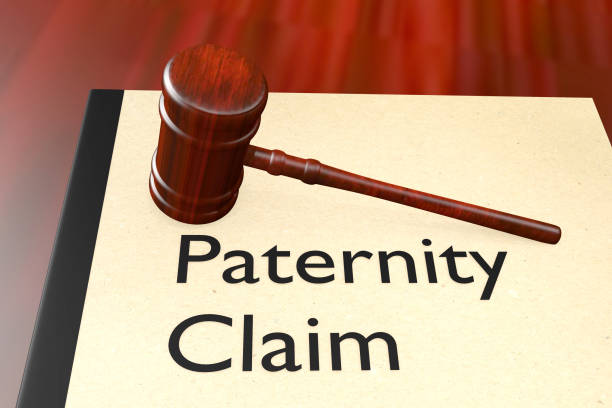One of the most commons questions our clients ask us is “how to get a paternity test Australia.” For this reason, we decided to write an article to answer the question how to get a paternity test in Australia.
Firstly, what is a paternity test? Paternity test is the use of DNA profiles (like hair sample, mouth swab) to determine if an individual is the biological parent of a child. In family law, paternity tests become important for matters such as who will pay child support payments, making original birth certificates etc.
So, how to get a paternity test in Australia? In Australia, for family law matters, generally a court orders an individual to get a paternity test. However, there are other ways to get one. In the article below we will discuss the question ‘how to get a court ordered paternity test in Australia.’
Importantly, we will discuss this question both in a legal context and non-legal context. For legal context, this question falls under family law.
How To Get A Paternity Test Australia: Legal Context
Family law causes complications and parties who are part of various parenting disputes after a divorce or separation. In some cases, depending on the matter, family courts may order paternity tests.
Section 69W of the Family Law Act (1975) states that the court may make a parentage testing order. As the name suggests, this order can determine the parentage of the child.
Under family law, court-ordered paternity tests are necessary in family law matters where:
- A party is refuting child support that another party is claiming from them;
- Courts need evidence regarding paternity of a child; or
- To obtain child support from an individual.
Courts order paternity tests in cases where there is a reasonable doubt about the child’s paternity. Importantly, if one party (Party A) has requested the court to order that another party (Party B) take paternity test, then Party A needs to satisfy the court that there is reason to believe that Party B is in fact the biological father of the child.
Therefore, the party needs to approach the family court for such orders. Before we look at the non-legal aspect to the question how to get a paternity test in Australia, let’s explore what the legislation says with regards to paternity in Australia.
Australian Legislation: Presumption Of Parentage
The Family Law Act (1975) states that there is a presumption of parentage (in the absence of a conclusive DNA test). Given below is a list of various sections under the Act that imply when a person can be considered a parent of a given child.
Under Subdivision D of Section 69 of the Act, the following presumption of parentage can apply:
- P: If a person was married to the parent when the parent conceived the child;
- Q: If a person cohabited with the other parent between 44-20 weeks before the child was born;
- R: Name on the child’s birth certificate;
- S: If Courts have made orders stating that a person is the parent of a child;
- T: Presumption arising from acknowledgement, i.e., if a person has sworn a statutory declaration.

How To Get A Paternity Test In Australia: Non-Legal Context
In Australia, non-legal paternity tests are also known as peace of mind paternity tests. Outside of family law, or legal context, peace-of-mind paternity tests are relevant to the question ‘how to get a paternity test in Australia.’
A peace of mind test is not a court-ordered test. A party takes such a test in case they are curious about the child’s paternity. This is not a court admissible paternity test because parties need to conduct those tests in a specific manner.
For example, for court-ordered tests, there needs to be an impartial collector. This is not a requirement for peace of mind tests.
Types Of Court-Ordered Paternity Tests
For court-ordered tests, the court will permit the relevant parties to attend an accredited laboratory for collection of DNA. Following this, the lab will conduct testing in line with Family Law Regulations (1984), and NATA approval (accreditation organisation).
The test can be of the following types:
- Mouth swab or other bodily sample;
- Cheek swab; or
- Blood test.
The lab will take these samples from both the parent and the child. For legal contexts and court-ordered paternity tests, the parties cannot provide self-tested samples. The parent and child need to take the test in a court-approved medical environment.
On the other hand, a person can conduct peace of mind paternity tests if they use DNA kits at home. As this article has discussed, there are certain differences between peace of mind and court-ordered paternity tests.
The most salient difference is the purpose for which these tests are taken. Secondly, the requirements also differ. Court-ordered paternity tests are needed for serious family law matters concerned with paternity.

Importance Of Seeking Legal Advice About DNA Testing
This article has explored the question how to get a paternity test in Australia for both legal and non-legal contexts. In family law matters, paternity testing orders can be tricky to deal with. This is especially so if a party is refusing child support claims.
Such situations can complicate family law matters because of conflicts and disputes between parties. Therefore, seeking legal guidance from the best family law firm becomes necessary so that each party makes informed decisions.
Moreover, it is necessary for each party to think and act with a clear mind. Legal advice will greatly help individuals who are preparing an application to request the court to order a paternity test against another party.
At JB Solicitors, our team of family lawyers are well-versed with the law. Our team has handled a variety of cases, making them highly experienced.
We pride ourselves in our community-oriented attitude that helps us reach desired legal outcomes. For more enquires, do not hesitate to contact us by using our enquiry form.
Click here to get in touch with us if you need help with a family court proceeding.
